Faculty Biographies
23-24 June 2022, Virtual Meeting
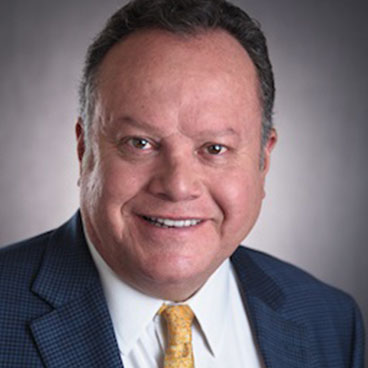
Rafael Fonseca, MD
Mayo Clinic, Arizona
Rafael Fonseca, MD, is the Getz Family Professor of Cancer, professor of medicine, interim executive director of the Mayo Clinic Comprehensive Cancer Center, director for innovation and transformational relationships, and a consultant in the Division of Hematology/Oncology at the Mayo Clinic in Arizona. He earned his MD at Universidad Anahuac, Mexico. He completed a residency in internal medicine at the University of Miami, FL, and a fellowship in hematology and medical oncology at Mayo Graduate School of Medicine, Rochester, MN. He was named a clinical investigator for the Damon Runyon Cancer Research Fund. He is a visiting healthcare fellow at the Goldwater Institute.
Dr Fonseca’s practice has focused on the diagnosis and treatment of plasma cell disorders and leading the multiple myeloma team in its effort to develop a better understanding of the disease and its impact on patients. In his laboratory, Dr Fonseca has led his team of researchers in concentrating on the genetic nature of the clonal cells of plasma cell disorders, myeloma bone disease, prognostic markers, and development of new therapies for the disease.
Throughout his training and career, Dr Fonseca has received numerous awards and honors, including the Damon Runyon-Walter Winchell Clinical Investigator Award, and the International Waldenström Macroglobulinemia Research Award. Most notably, he is a Mayo Clinic Distinguished Investigator, the highest academic distinction given to investigators at his institution. Dr Fonseca holds memberships and serves in positions for organizations such as the American Society of Clinical Oncology, American Society of Hematology, American Association for Cancer Research, and the International Myeloma Society. His research has been funded by the National Cancer Institute (R01, P01, SPORE), the Leukemia & Lymphoma Society, the Multiple Myeloma Research Fund, and the Damon Runyon Cancer Research Fund. Dr Fonseca serves as reviewer and in editorial capacities for medical publications including Blood, Lancet, Nature Medicine, Cancer Cell, Leukemia, and the New England Journal of Medicine, among others. He has given many national and international presentations as a visiting professor, and has authored numerous articles (over 300), book chapters, editorials, abstracts, and letters.
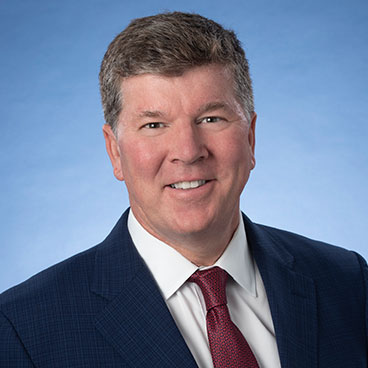
Keith Stewart, MBChB, MBA
Princess Margaret Cancer Centre, Canada
Dr Keith Stewart is Vice President, Cancer, at University Health Network in Toronto, Canada, and Director of the Princess Margaret Cancer Program. He is regional vice-president of Toronto Central South Regional Cancer Program, Ontario Health (Cancer Care Ontario), and holds the Richard H. Clark Chair in Cancer Medicine. He has served in several healthcare leadership roles across both research and clinical practice in Toronto and at the Mayo Clinic, where most recently he was director of the Center for Individualized Medicine.
Dr Stewart earned his medical degree at Aberdeen University Medical School, UK, and an MBA degree at the Ivey Business School, University of Western Ontario. He completed an internship at the Glasgow Royal Infirmary, UK; a residency in internal medicine at Queens University, Kingston, ON; a fellowship in hematology at the University of Toronto; and a fellowship in research at New England Medical Center in Boston.
Dr Stewart’s research focuses on the biology, genomics, and individualized treatment of multiple myeloma. He has over 30 years of sustained national funding for a laboratory research program in genomics and biology of myeloma, and has led numerous clinical trials of novel therapeutics for this disease from first-in-man to large practice-changing studies. A frequently invited speaker, Dr Stewart gives presentations on his research both domestically and internationally, and has authored over 350 journal articles, abstracts, and other written publications. He has served on the advisory and medical or scientific boards of many private and public institutions, including currently as a non-executive board member of Genomics England.
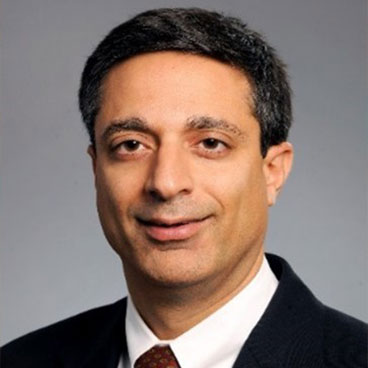
Sagar Lonial, MD, FACP
Emory University School of Medicine, USA
Sagar Lonial, MD, is department chair and professor of hematology and medical oncology at Emory University School of Medicine, Atlanta, GA, and chief medical officer of Winship Cancer Institute of Emory University. He earned his medical degree from the University of Louisville School of Medicine, KY. He completed his internship and residency at Baylor College of Medicine in Houston, TX, followed by a fellowship in hematology and oncology at Emory University School of Medicine. He is board certified in hematology, oncology, and internal medicine.
Dr Lonial is internationally recognized as a leading authority in multiple myeloma (MM) treatment and research. Since his arrival at Emory, he has worked in the field of immunotherapy and cancer, and in the previous 3 years spent time developing the B-cell malignancy program with respect to novel targeted agents in laboratory models, as well as early clinical trials. His previous laboratory work focused on evaluating the impact of purified dendritic cell subsets on the nature of immune responses against antigen, and he has completed several trials evaluating the impact of cytokines on dendritic cell content and posttransplant immune recovery. Most recently, Dr Lonial has focused on combinations of novel agents as therapy for myeloma and lymphoma, particularly evaluating combinations that may result in synergistic inhibition of the phosphoinositide 3-kinase/protein kinase B pathway. His lab has recently received funding from the Multiple Myeloma Research Foundation, the Lymphoma Research Foundation, and the Leukemia & Lymphoma Society. As a medical oncologist at the Winship Cancer Institute, he treats patients with MM and is a lead member of the bone marrow transplantation team and clinical trials team.
Dr Lonial is involved in numerous professional organizations, including the American Society of Clinical Oncology, American Society of Hematology, and the American Society for Blood and Marrow Transplantation. He serves as vice chair of the Myeloma Committee in the Eastern Cooperative Oncology Group, and as chair of the Steering Committee for the Multiple Myeloma Research Consortium. Additionally, he is on the board of directors for the International Myeloma Society, and on the Scientific Advisory Board for the International Myeloma Foundation.
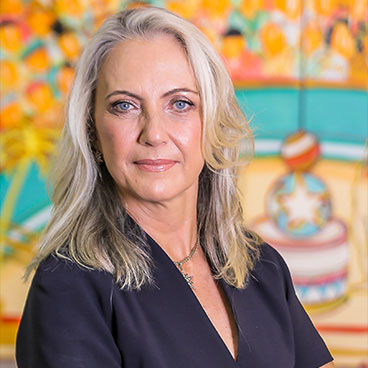
Vania Tietsche de Moraes Hungria, MD, PhD
São Germano Clinic, Brazil
Vania Tietsche de Moraes Hungria, MD, PhD, is associate professor of hematology and oncology at Santa Casa Medical School and clinical director of the São Germano Clinic in São Paulo, Brazil.
Since the beginning of her medical career, Dr Hungria has focused on plasma cell disorders, mainly multiple myeloma. She has conducted several national clinical trials, participated in multicenter international clinical studies, and has published on these topics.
Dr Hungria is a co-founder and chair of the International Myeloma Foundation Latin America Scientific Advisory Board. She is a member of the board of directors of the Brazilian Association of Hematology, Hemotherapy and Cellular Therapy, and a member of its Multiple Myeloma Committee. She is a co-founder and coordinator of the Brazilian Multiple Myeloma Study Group.
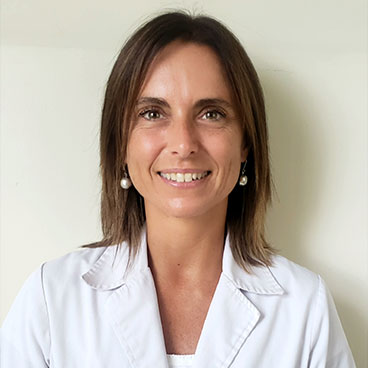
Eloisa Riva Serra, MD
Hospital de Clínicas, Montevideo, Uruguay
Eloisa Riva Serra, MD, is head of the Myeloma Unit and associate professor of hematology at Hospital de Clinicas, hematologist in the Hematology Department and Transplant Unit at British Hospital, and hematologist at Hospital Pasteur, Montevideo, Uruguay. She earned her medical degree from the Faculty of Medicine, Universidad de la República, Uruguay. She completed residencies in internal medicine at Hospital Pasteur, Hospital Militar, and Médica Uruguaya, as well as a magister in family medicine and a fellowship in hematology.
Dr Serra’s main interests are plasma cell disorders, amyloidosis, and lymphoma. She participates in clinical and basic research projects as a researcher and/or mentor. She conducted the first Uruguayan Myeloma and Amyloidosis Registry. As an associate professor, Dr Serra’s goals are to consolidate research in the area of plasma cell disorders, to promote mentees in the field, and to be involved in medical education, particularly in the improvement of her institution’s residency program and mentorship.
Dr Serra actively participates in the Uruguayan Association of Patients With MM. She is a member of the International Myeloma Working Group. She participated and served as faculty in the American Society of Hematology Clinical Research Training Institute in Latin America. She is past vice president and secretary of the Uruguayan Society of Hematology, and current president of the Latin American Multiple Myeloma Group (GELAMM), a collaborative network of hematologists involved in the study of monoclonal gammopathies. The group successfully led its first symposium in June 2021 and its first amyloidosis meeting in March 2022. Dr Serra has presented her research at numerous national and regional conferences, and her work has appeared in several publications, including Annals of Oncology, JCO Global Oncology, Lancet Oncology, Leukemia & Lymphoma, Annals of Hematology, and Blood.
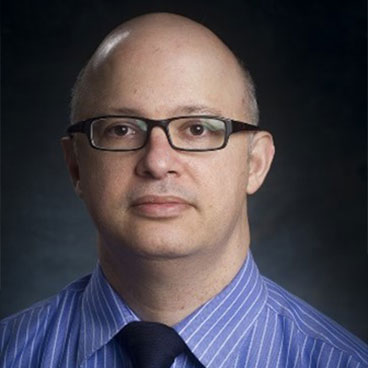
Luciano J. Costa, MD, PhD
University of Alabama, Birmingham, USA
Luciano J. Costa, MD, PhD, is professor of medicine and senior clinical investigator at the University of Alabama at Birmingham O’Neal Comprehensive Cancer Center, where he also directs the multiple myeloma research and treatment program. Dr Costa obtained his medical degree and subsequently his PhD from Universidade de São Paulo, Brazil. He trained in hematology and medical oncology at the University of Colorado and in blood and marrow transplantation at Mayo Clinic, Rochester, MN.
Dr Costa leads numerous multi-institutional and international projects exploring new cellular and immunotherapies and minimal residual disease in myeloma. He has published over 160 research articles in several peer-reviewed journals, including Lancet Haematology, Annals of Hematology, Leukemia, Cancer, Bone Marrow Transplantation, Journal of Clinical Oncology, British Journal of Haematology, American Journal of Hematology, and Blood.





